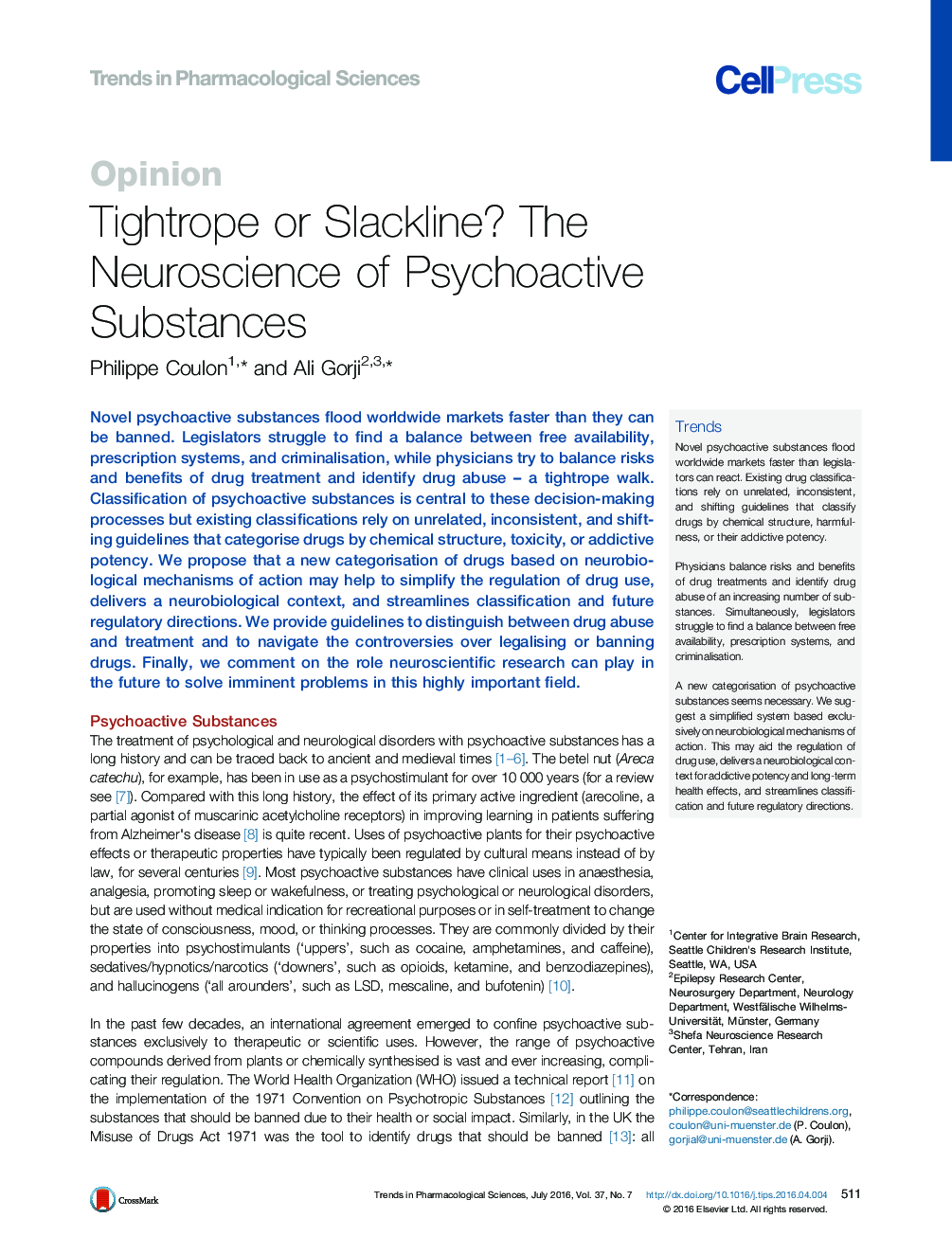| Article ID | Journal | Published Year | Pages | File Type |
|---|---|---|---|---|
| 2572434 | Trends in Pharmacological Sciences | 2016 | 11 Pages |
Novel psychoactive substances flood worldwide markets faster than they can be banned. Legislators struggle to find a balance between free availability, prescription systems, and criminalisation, while physicians try to balance risks and benefits of drug treatment and identify drug abuse – a tightrope walk. Classification of psychoactive substances is central to these decision-making processes but existing classifications rely on unrelated, inconsistent, and shifting guidelines that categorise drugs by chemical structure, toxicity, or addictive potency. We propose that a new categorisation of drugs based on neurobiological mechanisms of action may help to simplify the regulation of drug use, delivers a neurobiological context, and streamlines classification and future regulatory directions. We provide guidelines to distinguish between drug abuse and treatment and to navigate the controversies over legalising or banning drugs. Finally, we comment on the role neuroscientific research can play in the future to solve imminent problems in this highly important field.
TrendsNovel psychoactive substances flood worldwide markets faster than legislators can react. Existing drug classifications rely on unrelated, inconsistent, and shifting guidelines that classify drugs by chemical structure, harmfulness, or their addictive potency.Physicians balance risks and benefits of drug treatments and identify drug abuse of an increasing number of substances. Simultaneously, legislators struggle to find a balance between free availability, prescription systems, and criminalisation.A new categorisation of psychoactive substances seems necessary. We suggest a simplified system based exclusively on neurobiological mechanisms of action. This may aid the regulation of drug use, delivers a neurobiological context for addictive potency and long-term health effects, and streamlines classification and future regulatory directions.
